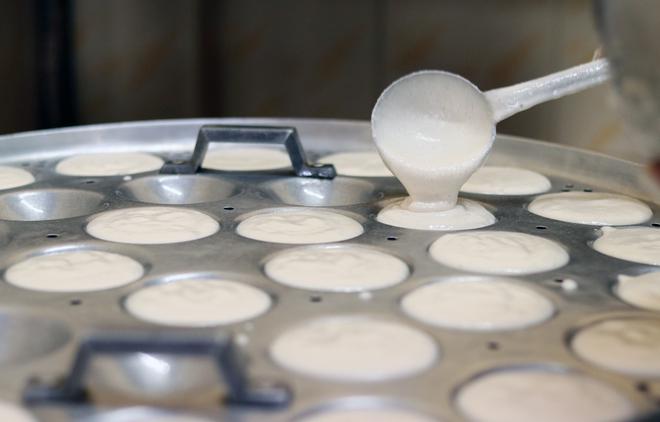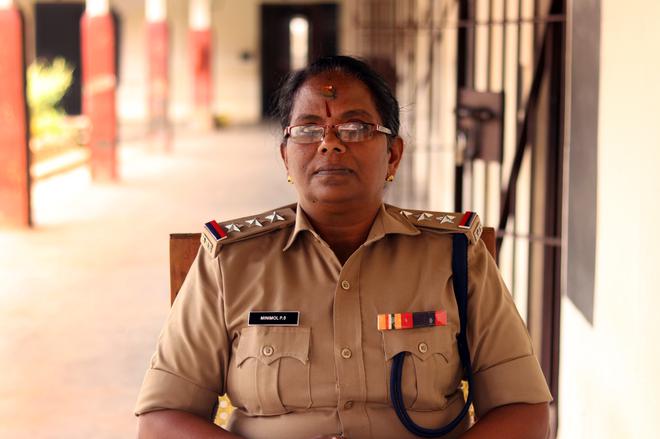“Kollamo (is it good)?” asks Sujatha (name changed) as I clean up the soft idlis, tangy sambar and chutney on my plate. We are at the food unit-cum-kitchen of the Women’s Prison and Correctional Home at Attakkulangara in Thiruvananthapuram. “The chutney has sautéed tomato, onion and chillies,” Sujatha adds, as another inmate passes a plate of banana chips, hot off the stove. They are among the four prisoners working at the unit.
Prisons and correctional homes across the state have been selling food products prepared by the inmates under the brand, Food for Freedom. The women’s prison, which opened at Neyyattinkara in the district in 1990 was shifted to the present location in September 2011.
The current building was once the stables of the erstwhile Travancore rulers in the mid-19th century. The age-old structure, with 46 inmates at present, stands on one acre and nine cents.
The food unit is a small room with minimal facilities. All that you see are two stoves, a refrigerator and cooking utensils, besides a shelf stacked with packets of banana chips, munthirikothu, pakkavada, madhuraseva, cookies, vettucake, mixture, mango pickle and roast groundnut. “All these snacks are made by these four women. Idlis are sold every day (except Sundays) from a counter near the prison entrance from 6am onwards. It usually gets over by 10am. A packet, costing ₹35, has five idlis, sambar and chutney,” says Minimol PS, superintendent-in-charge.

By 4.30am, the women get busy in kitchen, clad in their uniform – long blouse and mundu in off-white colour, a dark green apron and cap. “The batter is prepared the previous day. They grind enough batter for two days at a time. At least 30 idli packets are sold every day. Once the idlis are ready, they take a break, before they start making snacks,” says Rakhi Raghavan, assistant superintendent.
It was in 2016 that the prison started selling idlis. The unit has also been preparing food products on order. “During the Attukal Pongala festival (annual festival at Attukal Bhagavathy Temple which witnesses record assembling of women devotees), we provided upma for 1,000 people. It was a first for us. There was an order for 5,000 idlis on the same day. But we couldn’t take it up. We also provided free lunch for over 500 devotees on the day of the Pongala,” says Minimol.
Rakhi adds, “On the day of the Pongala, the inmates were in the kitchen by 12.30am itself since the upma had to be ready before 6am. Nearly 100 kilograms of rava (semolina) was used. Since we have only two stoves, we had to prepare it in batches of 10 kilograms each.”
The unit has been getting regular orders for idlis and snacks. “Recently there was an order for 1,500 idlis and 500 ila ada (steamed rice flour pancakes with a sweet filling) from a church in the city. We regularly supply evening snacks for the staff of a jewellery store at East Fort. They usually ask for ila ada or ullivada (onion fritters). We can prepare any snack provided the orders are placed in advance,” Rakhi says.

The snacks, besides being supplied via the counter at the jail, are also sold through a counter inside the KSRTC bus terminal complex at Thampanoor and at the cafeteria on the premises of the Central Prison and Correctional Home at Poojappura.
Source of livelihood
“Getting a job is not easy for prisoners once they finish their sentence because of the societal stigma. That is why we rolled out a slew of training programmes to make them self-sufficient; food production is one of the important initiatives,” says Balram Kumar Upadhyay, Director General of Prisons and Correctional Services.
He adds, “We are not doing this for profit. We aim to provide good food at reasonable rates. Alongside, we want to make these prisoners confident enough to take up a job once they are released. These are omnipresent jobs and so they can even start something on their own.”
Transforming lives
Kerala Prisons and Correctional Services Department ventured into food production in 2011 with the chapathi unit at the Central Prison and Correctional Home, Poojappura, Thiruvananthapuram. A chapathi costs ₹2 and comes in packets of five or 10. Curries are also available. Chapathi-making units are functioning in 10 jails across the state.
Food for Freedom Cafeteria, fully run by prisoners, functions on the premises of the prison at Poojappura. The 100-seater cafeteria, open from 7am to 10pm, has an elaborate menu, including breakfast dishes, biriyanis for lunch, snacks, cakes, and specials such as kizhi porotta and kothu porotta.
Food counters selling products manufactured by the inmates are also operational at KSRTC bus terminal and Regional Cancer Centre in Thiruvananthapuram.
Food production units are functioning in different district jails and special sub jails across the State. Cakes and bakes are a speciality of Central Prison at Viyyur in Thrissur.
Prisoners in various jails are also trained in tailoring, weaving, carpentry, paper bag production, fabrication work, nettipattam (ornamental head gear for elephants) etc.
Training in food processing is an ongoing activity because some convicts may get bail, some others parole, and some are released. According to Rekha K Nair, Welfare Officer, training is usually given to those convicted of a crime or offence and, in some cases, for remand prisoners as well. “Funds are allocated for the training and this year we have two projects – food processing and stitching/tailoring. Food processing classes are led by faculty members from Central Polytechnic, Vattiyoorkavu. It is a 60-hour certificate course and 15 convicts are attending it,” says Rekha. This time they are learning to make juice, cakes, fried rice and other dishes. One of the prisoners started a thattukada after she was released, she adds.

Rekha points out that working in the food unit has brought about significant changes in the behaviour of the inmates. “Initially they had sudden outbursts of anger and severe mood swings. Some fall into depression, especially when they think about their families and kids. But now they are so engaged in running the unit that they hardly have the time to get moody. Small things make them happy, like growing the herbs in our garden and when people appreciate the food they prepare,” says Rekha. They earn a daily wage of ₹127, which is transferred to their bank accounts.
Minimol observes that the food unit is currently working within a lot of limitations. “It would have been nice if we had a bigger room and more stoves. Also, if we had a vehicle, we could have delivered the food products to more places,” Minimol says.
Food counter at the prison is open from 6am to 7.30pm. To place orders, contact 9446899548 or 0471- 2452781.






